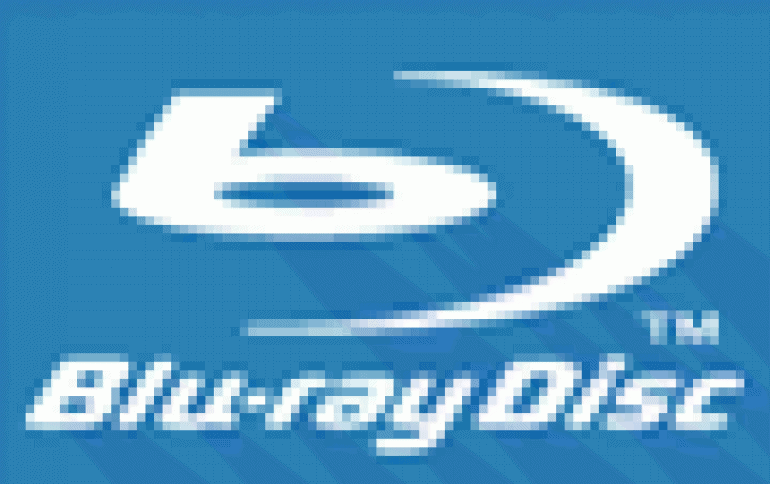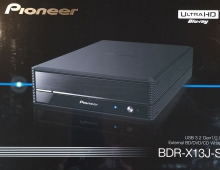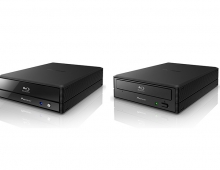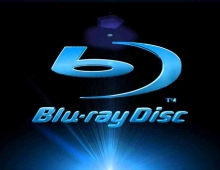
Blu-ray Camp Confident About Dominance in Market
Chances looked slim that consumers will be spared a DVD format war, as the Blu-Ray backers of one standard said on Friday there was no common ground for a unified format and it was on track for a market launch within a year.
"If we want a unified standard, it has to be better than the sum of the parts. We would like to find something that's better in the other standard than ours, but we haven't found it," said Frank Simonis, a spokesman for backers of the Blu-ray standard.
Speaking on the sidelines of the IFA consumer electronics trade fair, Simonis said the Blu-ray association was ready to lay down the specifications of the higher-capacity DVD format in the spring of 2006.
The rival HD DVD camp has recently had to push back its launch into the New Year. "We're no longer lagging behind," said Simonis, who is also strategic marketing director at the optical storage unit of Philips Electronics .
At stake is the multibillion dollar market for DVD players, PC drivers and optical disks. Blu-ray promises higher capacity DVD disks (up to 50 Gigabytes) that can store high definition films and better interactivity and security.
The HD-DVD camp, on the other hand, claims it has a cheaper technology compatible with current DVD and CD players, and this would be "the key of success", according to the HD-DVD related companies.
The support of the Hollywood studios and television producers, crucial partners who will have to print pre-recorded disks with movies and TV series, has been more evenly spread and many have held their options open.
However, studio owner 20th Century Fox said at IFA it had chosen Blu-ray after its backers improved security features that will prevent DVD piracy hurting the industry.
"We talked to both formats and asked them: 'What are you going to do about content protection?' We asked them to step up their content protection in a serious way, and the members of Blu-ray association won," said Andy Setos, president of engineering at the studio which is owned by News Corp .
He also said that production costs of Blu-ray are "competitive" and that the format is interoperable with existing DVDs and CDs formats.
Hollywood is suffering from rampant piracy, because the initial DVD standard that was put together exactly 10 years ago had been rushed to market and lacked features to prevent unauthorized copying and playback.
"DVD is not good. It isn't secure, the capacity is too low, the bit rate is too low," Simonis said.
In China in particular, many films are reproduced on DVDs illegally and sold at a dollar apiece on street corners. "We sell 20,000 DVDs a year in China, and they're priced at just $4.99. Just to prove a point," Setos said.
On top of that, consumers should expect punishment for tinkering with their Blu-ray players, as many have done with current DVD players, for instance to remove regional coding. The new, Internet-connected and secure players will report any "hack" and the device can be disabled remotely. Hacked devices will be "blacklisted" by the interactive internet - related authentication schemes, used in the Blu-Ray devices.
"A hacked player is any player that is doing something it's not supposed to do," Setos said, adding the jury was still out if regional coding would be maintained or scrapped.
Speaking on the sidelines of the IFA consumer electronics trade fair, Simonis said the Blu-ray association was ready to lay down the specifications of the higher-capacity DVD format in the spring of 2006.
The rival HD DVD camp has recently had to push back its launch into the New Year. "We're no longer lagging behind," said Simonis, who is also strategic marketing director at the optical storage unit of Philips Electronics .
At stake is the multibillion dollar market for DVD players, PC drivers and optical disks. Blu-ray promises higher capacity DVD disks (up to 50 Gigabytes) that can store high definition films and better interactivity and security.
The HD-DVD camp, on the other hand, claims it has a cheaper technology compatible with current DVD and CD players, and this would be "the key of success", according to the HD-DVD related companies.
The support of the Hollywood studios and television producers, crucial partners who will have to print pre-recorded disks with movies and TV series, has been more evenly spread and many have held their options open.
However, studio owner 20th Century Fox said at IFA it had chosen Blu-ray after its backers improved security features that will prevent DVD piracy hurting the industry.
"We talked to both formats and asked them: 'What are you going to do about content protection?' We asked them to step up their content protection in a serious way, and the members of Blu-ray association won," said Andy Setos, president of engineering at the studio which is owned by News Corp .
He also said that production costs of Blu-ray are "competitive" and that the format is interoperable with existing DVDs and CDs formats.
Hollywood is suffering from rampant piracy, because the initial DVD standard that was put together exactly 10 years ago had been rushed to market and lacked features to prevent unauthorized copying and playback.
"DVD is not good. It isn't secure, the capacity is too low, the bit rate is too low," Simonis said.
In China in particular, many films are reproduced on DVDs illegally and sold at a dollar apiece on street corners. "We sell 20,000 DVDs a year in China, and they're priced at just $4.99. Just to prove a point," Setos said.
On top of that, consumers should expect punishment for tinkering with their Blu-ray players, as many have done with current DVD players, for instance to remove regional coding. The new, Internet-connected and secure players will report any "hack" and the device can be disabled remotely. Hacked devices will be "blacklisted" by the interactive internet - related authentication schemes, used in the Blu-Ray devices.
"A hacked player is any player that is doing something it's not supposed to do," Setos said, adding the jury was still out if regional coding would be maintained or scrapped.





















